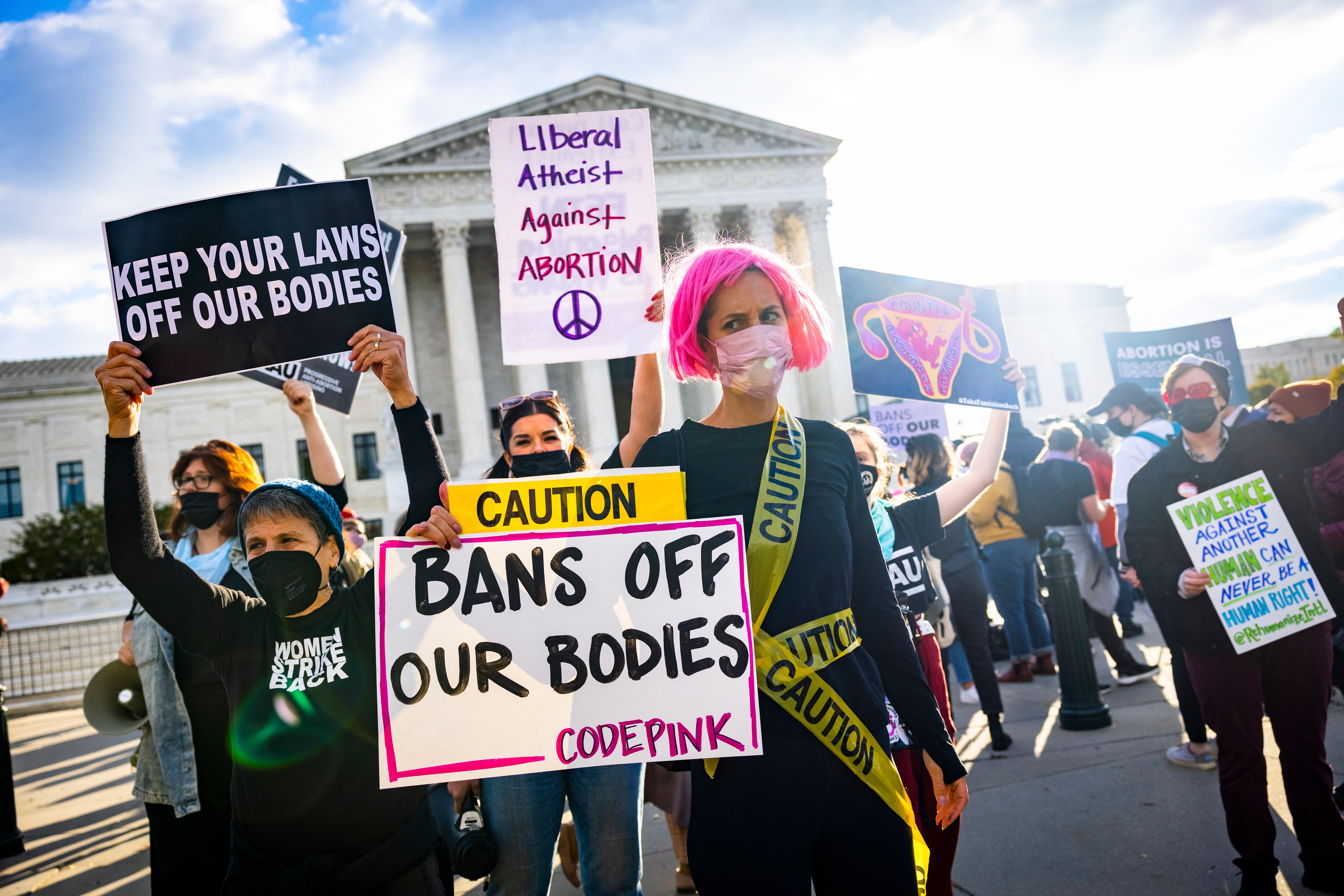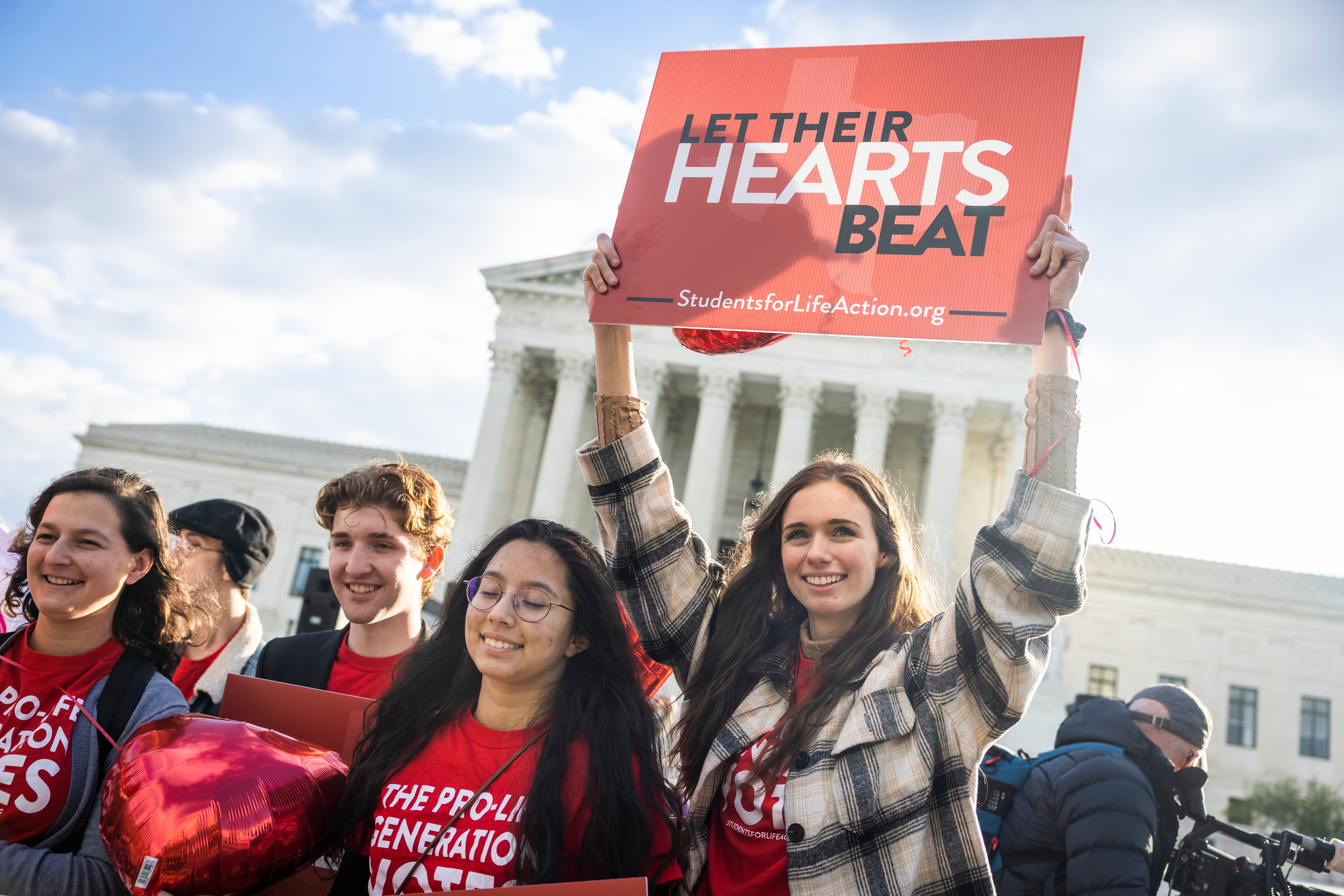Kavanaugh flags a major catch in Texas anti-abortion law for conservative gun owners
Kavanaugh, others question whether law could set precedent allowing states to infringe other rights
Your support helps us to tell the story
From reproductive rights to climate change to Big Tech, The Independent is on the ground when the story is developing. Whether it's investigating the financials of Elon Musk's pro-Trump PAC or producing our latest documentary, 'The A Word', which shines a light on the American women fighting for reproductive rights, we know how important it is to parse out the facts from the messaging.
At such a critical moment in US history, we need reporters on the ground. Your donation allows us to keep sending journalists to speak to both sides of the story.
The Independent is trusted by Americans across the entire political spectrum. And unlike many other quality news outlets, we choose not to lock Americans out of our reporting and analysis with paywalls. We believe quality journalism should be available to everyone, paid for by those who can afford it.
Your support makes all the difference.Supreme Court Justice Brett Kavanaugh, one of the most recent additions to the Court’s conservative majority, hinted on Monday that he questioned the precedent that would be set by allowing a Texas law banning abortions after six weeks to stand.
At issue is a provision in the law that seeks to go around language barring the state from enforcing the abortion ban, and instead relying on lawsuits filed by private citizens to act as an enforcement measure.
Critics of the law have suggested that the language could lead to all kinds of attempts to curtail rights guaranteed by the US Constitution or affirmed in Supreme Court cases should the justices find that this does not violate the established right to an abortion defined by Roe V Wade.

During oral arguments in the case, Mr Kavanaugh suggested a hypothetical situation in which a liberal-led state government could write laws stating that owners or sellers of AR-15 firearms could be held liable by private citizens in state courts.
“Anyone who sells an AR-15 is liable to any private citizen for a million dollars," Mr Kavanaugh said, describing the hypothetical law.
He then asked Texas’s solicitor general, Judd Stone, whether such a law would be subject to pre-enforcement review, meaning affected persons or agencies would have the chance to ask a court to halt its enforcement, before it was implemented. Mr Stone admitted that such a law could be implemented without such an opportunity for affected parties under the precedent set by allowing Texas’s law to stand.
The strongest criticism from the bench of the day came from Justice Elena Kagan, who remarked that the law appeared to be the result of “some geniuses [coming] up with a way to say the states can nullify federal law”, as well as Elizabeth Prolegar, the US Solicitor General representing the Biden administration’s attempt to block the law.
Ms Prolegar characterised the law as a clear attempt to weaken the authority of the Supreme Court and the supremacy of the federal government, and made an argument that echoed Mr Kavanaugh’s suggestion that other states would seek to pass laws curtailing other rights if it were to stand.
“Our constitutional guarantees cannot be that fragile and the supremacy of federal law cannot be that easily subject to manipulation,” she said, adding that “no constitutional right is safe” should Texas’s law stand.
Mr Stone’s defence to that criticism centred around the supposed ability of Congress to define rights in legislation in ways that could not be challenged at the state level.

Democrats have sought for years to codify abortion rights in federal law, which would bring an end to many state-led attempts to challenge Supreme Court precedent on the issue. The effort has seen little traction of late, however, as most Republicans in the 50-50 Senate have indicated opposition to such efforts or oppose abortion rights openly.
The Biden administration has issued numerous calls for Congress to pass a bill defining the right to an abortion at the federal level, while also indicating that the president and broader administration would work to oppose efforts by Republicans to roll back abortion rights at the state level.

Join our commenting forum
Join thought-provoking conversations, follow other Independent readers and see their replies
Comments